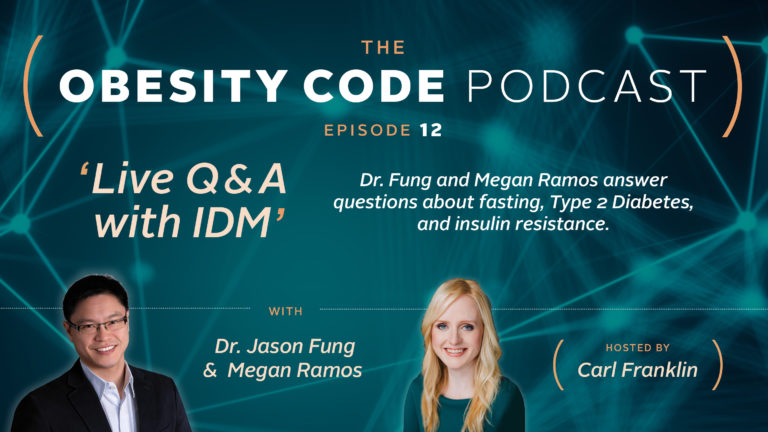Dr. Phinney’s concerns about fasting?
Summarized Transcription:
– Labels fasting as a “fad” saying it will produce major pushback from the health authorities when people start dying suddenly
– Getting adequate fluid, potassium, and sodium with an intermittent fast up to 24 hours is benign
– After 24 hours of no calorie intake, the body starts breaking down protein from lean tissue
– By Day 3 of fasting, the rate of lean tissue loss is equivalent to 3/4 pound per day
– The data on extended fasting in THE COMPLETE GUIDE TO FASTING is misstated
– If someone fasts for three days a week, the amount of lean tissue lost is greater than the amount of lean tissue they can regain in the other four days
– Doesn’t believe that Jimmy’s 10-pound lean tissue loss (according to DXA) during his 28 of 31 day fast in January 2016 was water, claims it would take 40 days of eating again to recover this loss (actually a follow-up DXA two weeks later showed all of that 10-pound “lean tissue” loss was back on my body again—so he’s mistaken)
– When someone fasts for a prolonged period of time, you’re vulnerable to “refeeding syndrome” (WWII prison camp prisoners suddenly died when they were fed copious amounts of food following extended fasting)
– There’s an acute shift in minerals out of the bloodstream into the cells causing an impairment of heart function
– The Liquid Protein Diet is used as an example of sudden death from refeeding syndrome that was reported as happening because of ketones…it shut down the science on ketosis for two decades
– For some people, a 36-hour fast is fine as long as the other 5 1/2 days of eating have adequate minerals (apparent contradiction of his earlier statement)
– We need research that shows long-term, positive, sustainability for people who are fasting to reverse diabetes and reduce body fat that goes 1-2 years
– With two-week fasting or longer, the rate of protein breakdown comes down markedly. First day of fasting produces very little protein breakdown, the rate of protein breakdown peaks on the third day of fasting, by two weeks the lean tissue loss is about one-third pound lean tissue loss daily and at 28 days it’s a quarter-pound a day of lean tissue loss (another contradiction of earlier statements)
– If you only look at urea, then the lean tissue loss seems to be much less but ammonia, creatinine, and other byproducts all make up the lean tissue loss as well so urea doesn’t give the entire picture.
– It’s unethical to write a book telling people to start fasting on their own (and yet we mention to consult with a physician often throughout our book)
– I’m not saying fasting is wrong, but we don’t know what the truth is
– Getting adequate potassium and magnesium is critically important and you’re not getting these when you are fasting …More



